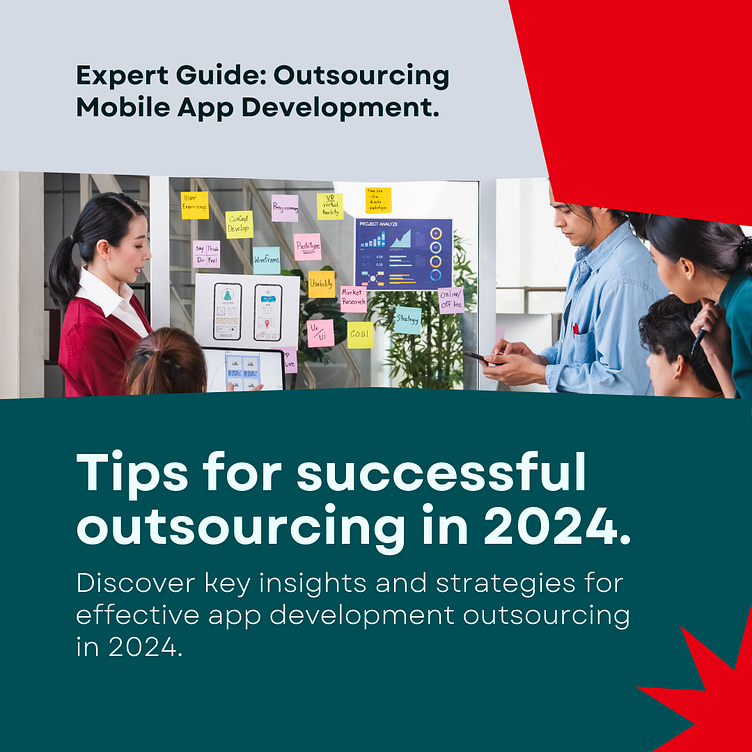Outsourcing Mobile App Development in 2024: Guide & Tips
In today's digital age, mobile apps have become integral to businesses across various industries. Whether it's enhancing customer engagement, streamlining operations, or expanding market reach, the demand for innovative mobile applications continues to soar. However, with the rapid evolution of technology and increasing competition, companies are faced with the challenge of delivering high-quality apps within tight timelines and budgets. This is where outsourcing mobile app development comes into play.
In 2024, outsourcing mobile app development remains a strategic choice for businesses looking to leverage specialized expertise, cost efficiencies, and faster time-to-market. Here are some trends and considerations shaping the landscape of outsourcing in the mobile app development industry:
Specialized Expertise: With the complexity of mobile app development increasing, businesses are seeking specialized skills and knowledge to bring their app ideas to life. Outsourcing allows companies to tap into a global talent pool of experienced developers, designers, and quality assurance professionals who possess the specific skills required for their project.
Advanced Technologies: The emergence of advanced technologies such as artificial intelligence (AI), augmented reality (AR), and blockchain has revolutionized the mobile app development landscape. Outsourcing partners often have access to the latest tools, technologies, and frameworks, enabling them to incorporate cutting-edge features into mobile apps efficiently.
Cross-Platform Development: To reach a wider audience and reduce development costs, many businesses opt for cross-platform mobile app development. Outsourcing firms proficient in cross-platform frameworks like React Native, Flutter, or Xamarin can help companies build apps that run seamlessly across multiple platforms without compromising on user experience.
Agile Development Methodology: Agile development methodologies continue to gain traction in the mobile app development process. Outsourcing partners adept at Agile practices can collaborate closely with businesses, iterate quickly, and adapt to changing requirements, ensuring the timely delivery of high-quality mobile apps.
Security and Compliance: With the growing concerns around data privacy and security, businesses are prioritizing security measures in their mobile apps. Outsourcing firms with robust security protocols and compliance expertise can help companies navigate regulatory requirements and safeguard sensitive data throughout the app development lifecycle.
Cost Efficiency: Cost remains a significant factor driving the outsourcing of mobile app development. By outsourcing development to regions with lower labor costs, businesses can achieve considerable cost savings without compromising on quality. Additionally, outsourcing allows companies to avoid upfront investments in infrastructure and resources, making it a cost-effective option for startups and small businesses.
Global Collaboration: The advent of digital collaboration tools and communication technologies has made global collaboration easier than ever before. Outsourcing mobile app development enables businesses to collaborate with teams located in different time zones, facilitating round-the-clock development and support services.
While outsourcing mobile app development offers numerous benefits, it's essential for businesses to choose the right outsourcing partner carefully. Factors such as experience, expertise, reputation, cultural fit, and communication skills should be thoroughly evaluated to ensure a successful collaboration.
In conclusion, outsourcing mobile app development in 2024 remains a viable strategy for businesses seeking to harness the power of mobile technology. By partnering with the right outsourcing firm, businesses can unlock access to specialized expertise, advanced technologies, cost efficiencies, and global talent, ultimately driving innovation and business growth in the dynamic mobile app landscape.
